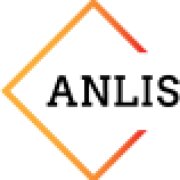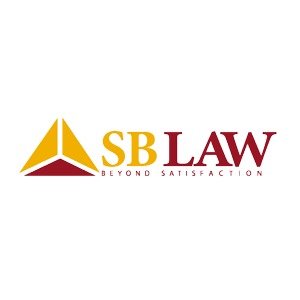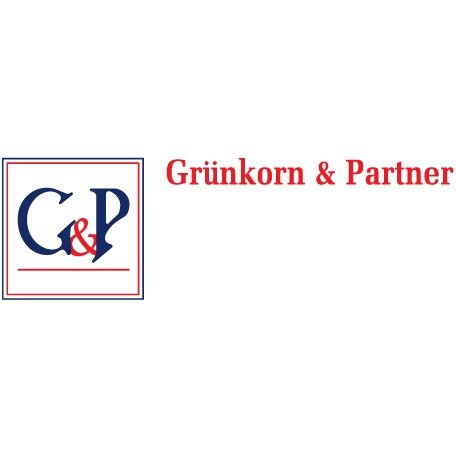Best Nonprofit & Charitable Organizations Lawyers in Hanoi
Share your needs with us, get contacted by law firms.
Free. Takes 2 min.
List of the best lawyers in Hanoi, Vietnam
About Nonprofit & Charitable Organizations Law in Hanoi, Vietnam
Nonprofit and charitable organizations in Hanoi, Vietnam, operate primarily to serve public interests and community needs rather than for profit. These organizations play a vital role in supporting various social, educational, cultural, and environmental causes. The legal framework governing these entities is designed to guide their establishment, operation, and dissolution, ensuring transparency, accountability, and compliance with both national and local regulations. Understanding this framework is crucial for anyone looking to start or run such organizations in Hanoi.
Why You May Need a Lawyer
There are several situations where legal assistance might be necessary for nonprofit and charitable organizations in Hanoi:
- Formation and Registration: Navigating the legal requirements to establish a nonprofit can be complex. A lawyer can help ensure compliance with regulations related to registration and organizational structure.
- Tax Compliance: Nonprofits may be subject to specific tax obligations and exemptions. Legal advice can help manage these to avoid penalties.
- Contractual Agreements: Drafting and reviewing contracts with donors, service providers, or partners can benefit from legal oversight to ensure terms are fair and enforceable.
- Regulatory Compliance: Ensuring compliance with local and national laws is critical to organization legitimacy. A lawyer can provide guidance on ongoing legal obligations.
- Dispute Resolution: Legal aid can be crucial in resolving internal disputes or challenges from external parties.
Local Laws Overview
In Hanoi, nonprofit and charitable organizations are subject to the national laws of Vietnam, supplemented by local regulations. Key aspects include:
- Registration Requirements: Nonprofit entities must register with the appropriate governmental authorities and provide detailed documentation about their activities and governance.
- Financial Reporting: There are stringent financial reporting and auditing requirements to ensure transparency and accountability.
- Tax Regulations: Understanding the different tax exemptions and obligations applicable to nonprofits is essential to maintain compliance.
- Prohibited Activities: Organizations must adhere to legal restrictions on activities, ensuring that their operations align with their nonprofit objectives without engaging in political or commercial activities prohibited by law.
Frequently Asked Questions
What is the process to register a nonprofit organization in Hanoi?
The registration process involves submitting an application to the local Department of Planning and Investment, including necessary documents such as an organizational charter, list of founding members, and information about the board of directors.
What tax obligations do nonprofits in Hanoi have?
Nonprofits may benefit from tax exemptions on income directly related to their charitable activities, but they are required to report income and financial activities. Consultation with a tax advisor can clarify specific obligations.
How can a nonprofit maintain compliance with local laws?
Regular audits, transparent financial reporting, and adherence to the operational guidelines set by local authorities are essential for compliance.
Can a foreign entity establish a nonprofit in Hanoi?
Yes, foreign entities can establish nonprofits, but they must comply with additional regulations and possibly seek approval from relevant national bodies.
Are there any restrictions on fundraising activities for nonprofits in Hanoi?
Nonprofits must seek permission from the local authority to conduct certain types of fundraising activities, particularly those that involve public donations.
What governance structure is required for a nonprofit?
Nonprofits must have a clearly defined governance structure, typically including a board of directors, and comply with regulations outlining the roles and responsibilities of officers.
What are the rights of donors in nonprofit organizations?
Donors have the right to receive acknowledgments of contributions and assurances that donations are used in accordance with the stated purposes.
Can a nonprofit be involved in political activities?
Nonprofits in Hanoi are restricted from engaging in political activities that do not align with their charitable purposes, as defined by law.
How often must a nonprofit report its activities?
Nonprofits are typically required to submit annual reports detailing their financial status and map of activities to the relevant authorities.
What are the penalties for non-compliance with nonprofit regulations?
Penalties can range from fines to deregistration and are usually determined by the severity of the compliance breach.
Additional Resources
For more assistance, the following resources can be helpful:
- Ministry of Justice: Provides legal guidance and framework for nonprofit organizations.
- Department of Planning and Investment: Handles registration and administrative aspects of nonprofit activities.
- Local Legal Aid Centers: Offer free or low-cost legal assistance for nonprofit and charitable organizations.
Next Steps
If you need legal assistance with nonprofit and charitable organizations in Hanoi, consider these next steps:
- Identify your needs: Understand what specific legal help you require - whether for registration, compliance, or dispute resolution.
- Consult with a lawyer: Seek out legal professionals who specialize in nonprofit law in Vietnam. Consider their experience, reputation, and understanding of local regulations.
- Prepare Documentation: Gather all necessary documents and information that may be required for legal review or submission to government authorities.
- Follow Up: Stay engaged with your legal counsel to ensure timely updates and compliance with all legal requirements.
Lawzana helps you find the best lawyers and law firms in Hanoi through a curated and pre-screened list of qualified legal professionals. Our platform offers rankings and detailed profiles of attorneys and law firms, allowing you to compare based on practice areas, including Nonprofit & Charitable Organizations, experience, and client feedback.
Each profile includes a description of the firm's areas of practice, client reviews, team members and partners, year of establishment, spoken languages, office locations, contact information, social media presence, and any published articles or resources. Most firms on our platform speak English and are experienced in both local and international legal matters.
Get a quote from top-rated law firms in Hanoi, Vietnam — quickly, securely, and without unnecessary hassle.
Disclaimer:
The information provided on this page is for general informational purposes only and does not constitute legal advice. While we strive to ensure the accuracy and relevance of the content, legal information may change over time, and interpretations of the law can vary. You should always consult with a qualified legal professional for advice specific to your situation.
We disclaim all liability for actions taken or not taken based on the content of this page. If you believe any information is incorrect or outdated, please contact us, and we will review and update it where appropriate.
















